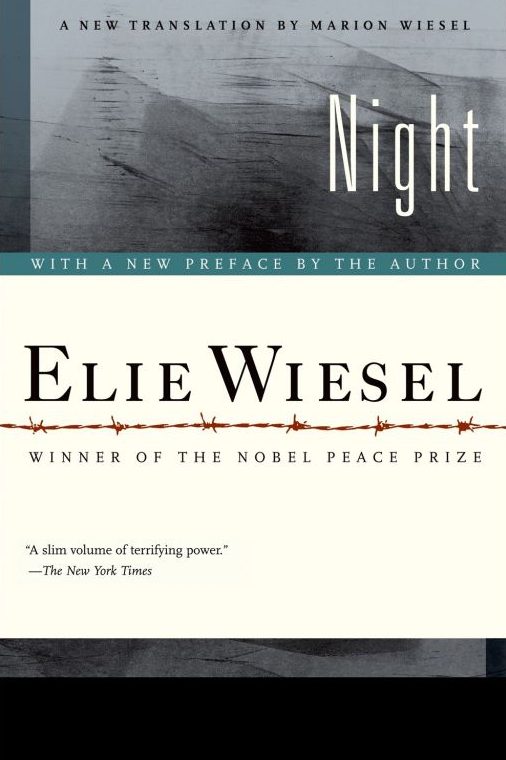
Here at Warren Corruptional, I’m involved in a book club that was organized by a retired professor who formerly taught here. Her name is Gloria Flaherty. Gloria marched with Martin Luther King in the 1960s and still advocates for peace and for the leftism that emerged from that era. If you ever want to hear an 80 year-old former professor string together colorful obscenities– some of them in Italian –all you have to do is press her buttons by implying Donald Trump might know what he’s doing.
Gloria introduces reading selections to our book club and then facilitates our discussions. Some of the prior books includes Frantz Fanon’s ‘Black Skin, White Masks,’ about colonization from a black colonial perspective, and Jaqueline Woodson’s ‘Brown Girl Dreaming.’ During my 50-day hunger-strike I missed out on ‘To Kill a Mockingbird.’
I have done my best to get Gloria to give up on the hierarch delusion and jump to our side of the barricades, joining the ski-mask and dumpster-fire crowd, so far to no success. Feel free to send her literature. I hope someone out there can introduce her to a zine I co-wrote called, ‘Last Act of the Circus Animals.’ If we’re going to convert her, we better hurry. She’s in her 80s, so we likely only have a couple of decades, which is probably longer than the time we have before the a-trump-alypse takes us back to the next neolithic anyway and turns us all into anarchists.
At any rate, the latest selection for the book club was Elie Weisel’s ‘Night,’ which recounts his experience as a young Jewish teen surviving the concentration camps of Auschwitz and Buchenwald. Weisel, who died not too long ago, was a Nobel Peace Prize winner– and I highly recommend this selection, which can probably be found wherever good books are stolen. In the book, Weisel manages to introduce the events of mass-extermination without judgment. To his great credit, he presents the reader what happened and lets us feel whatever it is that we feel rather than imposing his own feelings on the subject matter.
Early in the story, Weisel introduces the character of Moishe the Beadle, a poor and somewhat curious character in his hometown, who was rounded up for expulsion because he was a foreigner. Moishe was crammed onto a cattle car and taken away.
Shortly after, Moishe the Beadles returned, telling the Jewish population of the town that everyone who had been expelled with him had been exterminated. Once taken to the Polish territory, the Gestapo had ordered everyone to dig huge trenches and were then summarily shot, falling into the mass grave they themselves had dug. he described infants tossed into the air and used as target practice for machine guns. Moishe himself had been shot but only wounded and played dead until he made his escape so he could warn the Jews of his home twon what was in store.
To quote from the book:
“Day after day, night after night, he went from one Jewish house to the next, telling his story and that of Malka, the young girl who lay dying for three days, and that of Tobie, the tailor who begged to die before his sons were killed.
Moishe was not the same. The joy in his eyes was gone. He no longer sang. He no longer mentioned either God or Kabbalah. He spoke only of what he had seen. But people not only refused to believe his tales, they refused to listen. Some even insinuated that he only wanted their pity, that he was imagining things. Others flatly said that he had gone mad…
Even I did not believe him. I often sat with him, after services, listening to his tales, trying to understand his grief. But all I felt was pity…
‘You don’t understand,’ he said in despair. ‘You cannot understand. I was saved miraculously. I succeeded in coming back. Where did I get my strength? I wanted to return to Sighet to describe to you my death so that you might ready yourselves while there is still time. Life? I no longer care to live. I am alone. But I wanted to come back to warn you. Only no one is listening to me…'”
Time and again, Weisel describes where he and others were confronted with the truth of the extermination camps, and the great lengths they went in order to NOT believe, even when facing the crematoria and the sight of infants tossed onto bonfires– “Moishe the Beadle Moments,” where they had opportunities to accept the bewildering reality and take an alternate course of action.
It seems to me that e are all experiencing a series of Moishe the Beadle Moments… the police violence against Occupy… the hum-vees in the streets of Ferguson… the internal sabotage of a socialist Jew running for president… the election of a fascist on a false populist agenda… the expulsion of foreigners… the surveillance exposed by Snowden and then others… the use of torture, both foreign and domestic… the slow and incremental methods employed daily that give our world more and more the character of an open-air concentration camp. I am reminded of Derrick Jensen’s observation that more Jews survived the concentration camps by resisting than by obeying. And I am reminded of the words of Meir Berliner, who died fighting against the S.S. at Treblinka Death Camp: “When the oppressor gives you two options, always take the third.”
How many Moishe the Beadles Moments do we need to scream at us in order to persuade us to run, to hide, to resist? It makes me pause to wonder at who might be the next Elie Weisel who perhaps survives to describe our collective fate, how we stood in the forrest with guns to our backs and in disbelief of the obvious continued… digging… the trenches…
This is Anarchist Prisoner Sean Swain from Warren Corruptional in Lebanon, Ohio. If you’re listening, you ARE the resistance…
